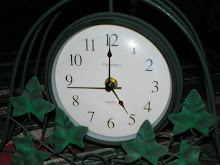My benchmark translation is the NASB. I usually start my morning with it by reading in Proverbs, unless it is a month when I am dabbling in another for comparison purposes. As I was reading through Proverbs 17 this verse stood out to me, not because of some great insight, but because it made me scratch my head and say, “What?” This is the way the NASB has it:
(Proverbs 17:19 NASB) He who loves transgression loves strife; He who raises his door seeks destruction.What does this second phrase mean? The idea of “exalteth” (raises NASB) (1361b) infers arrogance. The KJV gives us a better idea. What is an arrogant “gate” (door NASB) (6607)?
This is a place for commentaries. Most of the time I don’t find them very valuable but when I find a head scratcher I like to see what their itches have brought to the surface. John Gill says,
“The Septuagint, Vulgate Latin, and Arabic versions, have it in Pro_17:16, ‘he that buildeth his house high’; or who behaves proudly.”I like that way of saying it. I can understand building my house high.
The Geneva Bible, an early competitor of the KJV, has a footnote, “Lifts up himself above his degree.” This is talking about social classes. In the seventeenth century the world was very much into social class. They would have meant that we are to not question our betters. Sometimes it is interesting to see how people with different assumptions about culture see things. In America we are taught that there are no inherited social classes. After all, “all men are created equal.” We are what we earn by the sweat of our brow. That is obviously an ideal but one we feel is right. It would seem to me the Bible questions that assumption.
Are there Biblically acceptable social classes? As an American I have been taught differently. In my limited experience in Europe I see an ingrained respect of social class. My observation of Mexican culture says social class is alive and well there. Most of the world follows that example. Proverbs has a lot to say about kings and prophets. Is it a recommendation or just an observation of what exists? Maybe they are right and we are wrong. If this is of the Lord, the Holy Spirit will keep bringing in back.
So? However we feel about kings, it would seem we are talking here about a lack of humility. King or peasant we are warned about setting our opinion of ourselves too high. We are called to love our neighbor and to put the needs of others before our personal wants. This is a good reminder.

2 comments:
I read in the KJV, but use the NASB as back-up. You've probably heard that the KJV was roundly condemned by many old-line Protestants as being "too king friendly."
No, I never heard that. I can see it though. Just shows we are never too old to learn something new.
Grace and peace.
Post a Comment